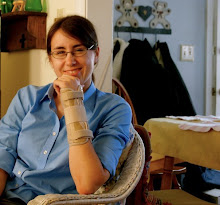At the bottom line, of course, it all comes down to self-discipline-- knowing when to say you have spent enough time online. However, simple steps abound by which you can get your life online back under control.
With that in mind, I have compiled a list of eight ideas for doing exactly that. The first five are directly related to how you use Facebook, the latter three are more broadly applicable.
- Hide and Seek. One of Facebook's most helpful new(er) features is the capacity to hide things in your newsfeed. If your friends are playing Farmville and the notifications keep showing up all over your feed, just click "Hide"! If you change your mind (you probably won't), you can always go find it and reverse the decision. You can also hide people that you are not interested in seeing in your newsfeed, but consider the following:
- It is okay to de-friend people. Really. If you are so uninterested in them that you hide them and never go to their profile page, consider a purge of your friends list. Chances are good that most of them won't notice, but if they do, they can always re-friend you later. Or, if removing someone as a Facebook friend is really too hard for you to do...
- Make lists. Another delightful new-ish feature on Facebook is the ability to make lists of your friends, creating an effective filter for whatever groups of people you choose. My favorite thing about the lists? You can make one of all the people you might want to talk to on Facebook chat, and set it up so that you appear online only to those people. Goodbye to hearing from that old classmate you've never really wanted to keep in touch with anyway.
- Cut down your use of applications. Seriously, are these games (FrontierVille, Mafia Wars, etc) really why you signed up for Facebook? Are the bumper stickers and quizzes and pieces of flair? If so, disregard this item. If not, go in to your applications list and remove them. All you need are the basics...plus maybe one or two apps that you really enjoy, don't suck a lot of time, or otherwise enrich your online life (for me, those two are Scrabble and Selective Tweets; I've uninstalled everything else).
- On Notice. You can get a lot of different notifications on Facebook. Tagged photos, comments, wall posts, links, accepted friend requests...but you don't have to let them take over your regular email inbox. Unsubscribe.
- Feed the addiction carefully. Google Reader has become one of my favorite online tools. I set up feeds to it for blogs, entertainment, and general news. I love the ability to flip through it quickly, and to select particular articles that I want to read more in-depth. It's also a good way to share articles (as is Twitter). That being said, it is important to be very self-controlled with how many feeds you subscribe to. Set a cap and stick to it.
- Limit your time. This is the piece of advice given every time someone writes suggestions about using the Internet, but it's a good one. Set a limit on how much time you are going to spend on a given site. There are some instances where this is easier to pull off than others. For example, I generally limit myself to half an hour on my Google Reader at a given point in the day. This includes reading the posts that I select as worth a closer read. That's relatively easy to do. Facebook, on the other hand, is one of the biggest time-suckers on the Internet, and defining time on there can be much more of a challenge. This is why you have to learn how to know when to...
- Shut it down. I mean this in two regards. First and most important is to know when to shut off your internet or your computer entirely. If you need to focus, if you are getting a headache, if you know you've spent hours staring at a screen without getting anything accomplished, just power it down. If you have an extended period coming up where you are going to need to be very productive (final exams time in college, for example), it is also worth considering deactivating your online accounts like Facebook and Twitter, or getting a friend to change your password so you can't waste time on them.
